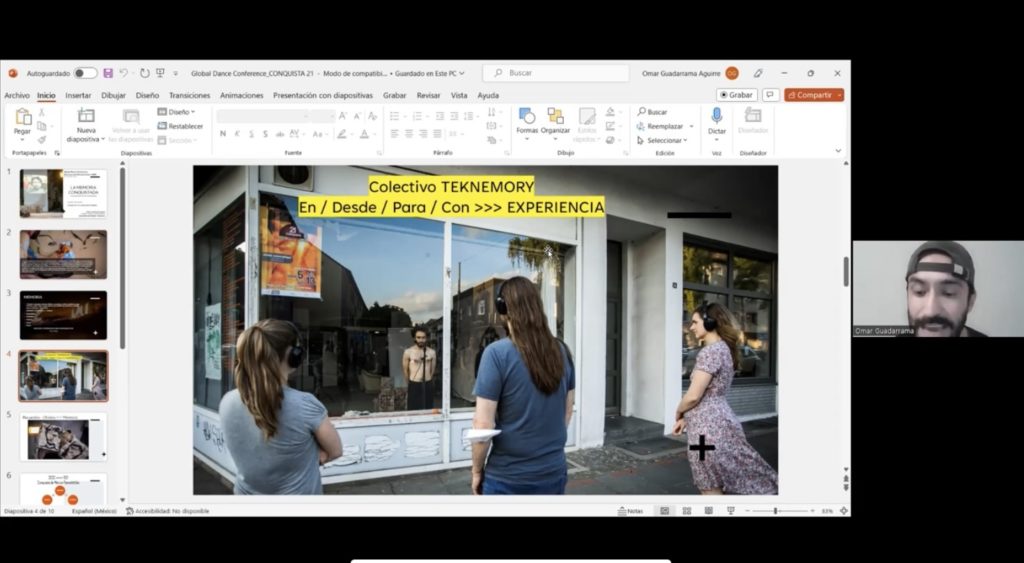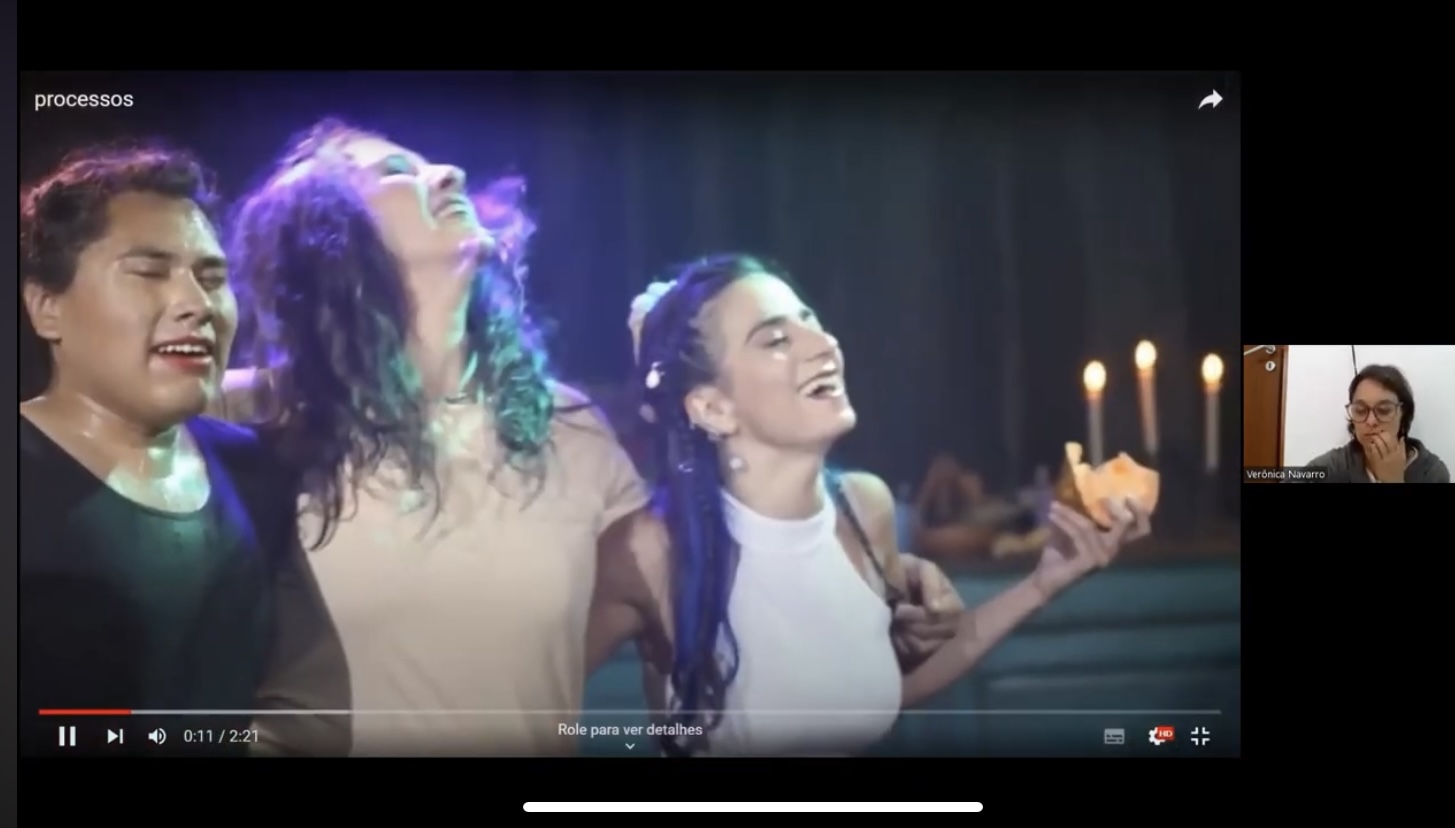Words by Paula Catalina Riofrio.
I was commissioned to cover the third edition of Dancing with Decolonisation, an organisation started by a small group of alum from the University of Roehampton who decided to pursue a yearly symposium to share and question decolonial dance practises. Here I write about the second day of the online symposium, hearing from artists and thinkers from across the world as I contemplate my own movements from London to San Francisco and South America.
I found it extremely hard to keep my feelings out of all the socio-political struggles that surrounded most of the lectures. I came to realise after a conversation with a friend: Dance cannot remain unbiased from what we feel in front of a technique, in front of our social environment, in front of the information that is given or denied to us. Dance is the detour and the deviation of stillness, dance is the phenomenology of biases; the noticing of that which is impenetrable by logic and the technique that grows out of it.
All of us attendees agreed on something, dance is not only dance. The conference started with Veronica Navarro, who shared with us her research on the afro-american and indian-american cultures in the context of folkloric dance. Part of the process involved looking at archives, but also creating new material with the communities, while indagating through spoken memory and body movements themes such as racism and patriarchal demeanors. Memory is an important catalyst for social change in Latin America. I was sat on a table in Kerouac alley, writing while listening to street jazz. I looked around and read on one of the walls Un pueblo con memoria es un pueblo rebelde. This quote came from an unknown Mexican young activist during a March that commemorates every year the disappearance of the 43 students from Ayotzinapa. Protest is a material for dance, an embodied response that generates vibrations and transformation – a dance in and of itself.

Omar Guadarrama Aguirre, Mexican scenic creator, talked to us about The Trilogy of the Memory, a performative process that he started in 2020. Aguirre looks for a reinterpretation of colonisation in America, confronting the particular context of the Spanish and Mexican encounter. La memoria conquistada, his last work, uses striking multimedia creations that propose new paths to acknowledge and confront colonisation. It is indeed a big challenge for most Latin American countries to use the bitter past inflicted by the old European empires as compost; but dance is surely doing its part in the process.
One thing I would love to share with you is that Abya Yala is the name that Indigenous Peoples from America use to refer to their territories. The ways of self defining and finding oneself through language appropriation make a difference to our practices. I learnt this from Mántiz Apocalipstick (Juan Carlos García). She gave an outstanding introduction to Vogue Culture and how it migrated from New York into Mexico. Voguing is not only a ballroom practice, Mántiz defines it as a living manifestation that extends itself through gender identity, social class belonging and other cultural and individual aspects of its participants. Voguing is also a community, not particularly harmonious nor violent, it is a microcosmos into the macro and it has created its own rules that keep being modified along with the transit of its people.
Later that day, Josefina Zuain, dancer and historian, conducted a workshop titled Reculonizar la danza, an encounter between twerk technique and reflective writing. The purpose of it was to make conscious the processes that we activate by moving unconventional, less investigated parts of the body. Moving our butts at certain vibrations while generating vibration inside us was the fuel to write and think about ourselves and our relation to this particular zone that is commonly hidden. The upbeat of Zuain’s workshop enhanced the concentration and energy of all the attendees, we could all sense it, see it on each others’ faces.
To watch Dancing with Decolonisation workshop recordings visit DCD’s YouTube.
